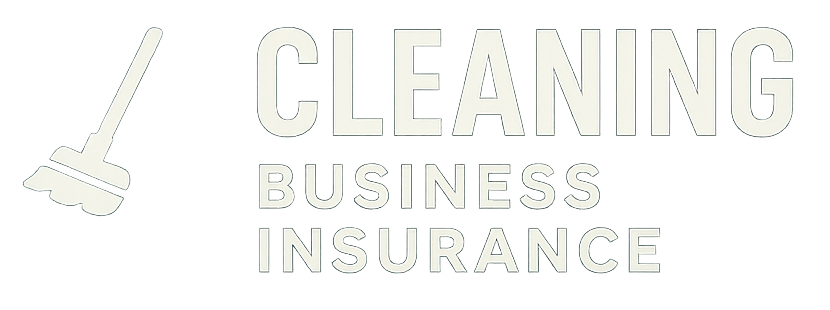Running a cleaning business in California comes with unique responsibilities and risks. From residential maid services to commercial janitorial operations, cleaning companies face potential property damage, employee injuries, and liability issues every day. Because of these risks, the California Department of Insurance (CDI) provides guidelines and regulatory requirements to ensure that businesses in this sector carry appropriate insurance coverage. Understanding these requirements is crucial for compliance, risk management, and protecting your business from financial losses.
Why Business Cleanup Insurance Is Essential in California
Cleaning businesses are exposed to a variety of risks that make insurance essential. For example, a slip-and-fall accident at a client’s property, accidental damage to furniture, or exposure to hazardous cleaning chemicals can all result in costly claims. In California, business owners are legally required to carry certain types of insurance, and the state’s regulatory body—the CDI—monitors compliance to protect both employees and the public.
According to the CDI, having proper coverage is not just about legal compliance; it is also a safeguard for your business reputation. Clients and commercial property managers are more likely to hire a cleaning company that is insured, knowing that any damage or injury occurring during the cleaning process is properly covered. Without adequate coverage, a single claim can lead to serious financial consequences, including lawsuits or business closure.
General Liability Insurance Requirements
The California Department of Insurance highlights general liability insurance as a cornerstone of protection for cleaning businesses. General liability policies cover third-party bodily injuries, property damage, and personal injury claims. For example, if a client’s expensive rug is accidentally damaged or if someone slips on a wet floor while your staff is working, general liability insurance ensures that your business can cover repair or medical costs without putting your personal finances at risk.
The CDI also emphasizes that the limits of liability should match the scope and size of the cleaning operation. Small residential cleaning services may require lower coverage limits, while commercial cleaning companies handling multiple properties or high-value assets may need higher limits. This ensures that your policy can adequately respond to claims without leaving gaps in protection.
Business Owner’s Policy (BOP) Considerations
For many cleaning companies, the California Department of Insurance recommends considering a Business Owner’s Policy (BOP). A BOP combines general liability coverage with commercial property insurance, and often includes business interruption protection in a single, cost-effective package.
Property coverage under a BOP protects your equipment, tools, and supplies against theft, fire, or other covered perils. Business interruption insurance ensures that your company remains financially stable if operations are temporarily disrupted due to a covered event. For cleaning businesses, this could mean being unable to access a storage facility or having a vehicle damaged that is critical to completing jobs.
CDI guidelines suggest that combining these coverages in a BOP simplifies management, reduces administrative burden, and often provides savings on premiums. It is also easier for business owners to demonstrate compliance when all core coverages are bundled in a single policy.
Workers’ Compensation Insurance Requirements
California law mandates workers’ compensation insurance for all businesses with employees, and cleaning companies are no exception. The CDI ensures that cleaning business owners understand their obligations to provide medical benefits and wage replacement if an employee is injured on the job.
Cleaning staff face numerous risks, including lifting heavy furniture, exposure to cleaning chemicals, working on ladders, or slipping on wet surfaces. Workers’ compensation coverage protects employees and shields the business from potential lawsuits arising from workplace injuries. Failure to carry this insurance in California can result in significant fines, legal penalties, and potential suspension of business operations.
Additional CDI Guidance for Cleaning Businesses
The California Department of Insurance also advises cleaning business owners to:
Review Policies Regularly: Coverage needs can change as your business grows, takes on higher-value clients, or adds specialized services. Regular reviews help ensure you maintain adequate protection.
Document Insurance Properly: Clients may request proof of insurance before hiring your services. Having current certificates and policy documentation available demonstrates professionalism and compliance.
Understand Policy Exclusions: Not all risks are automatically covered. For example, certain biohazard cleanups, mold remediation, or chemical spills may require specialized endorsements. Knowing what is and isn’t covered helps prevent surprises during a claim.
Consult Professionals: The CDI recommends working with licensed insurance brokers or agents experienced in cleaning business insurance to ensure policies meet both state requirements and operational needs.
Conclusion
Cleaning businesses in California operate in an environment with high exposure to risks, from property damage to employee injuries. The California Department of Insurance provides clear guidance to help business owners maintain compliance while protecting their operations. By understanding and implementing the recommended insurance coverages—such as general liability, a Business Owner’s Policy (BOP), and workers’ compensation—cleaning companies can safeguard their finances, maintain credibility, and operate with confidence.
Proper insurance is not just a regulatory requirement; it is a business strategy that builds trust with clients, ensures employee safety, and provides financial stability. Cleaning business owners who follow CDI guidelines and maintain comprehensive insurance coverage are better positioned to grow their operations while minimizing risks.
